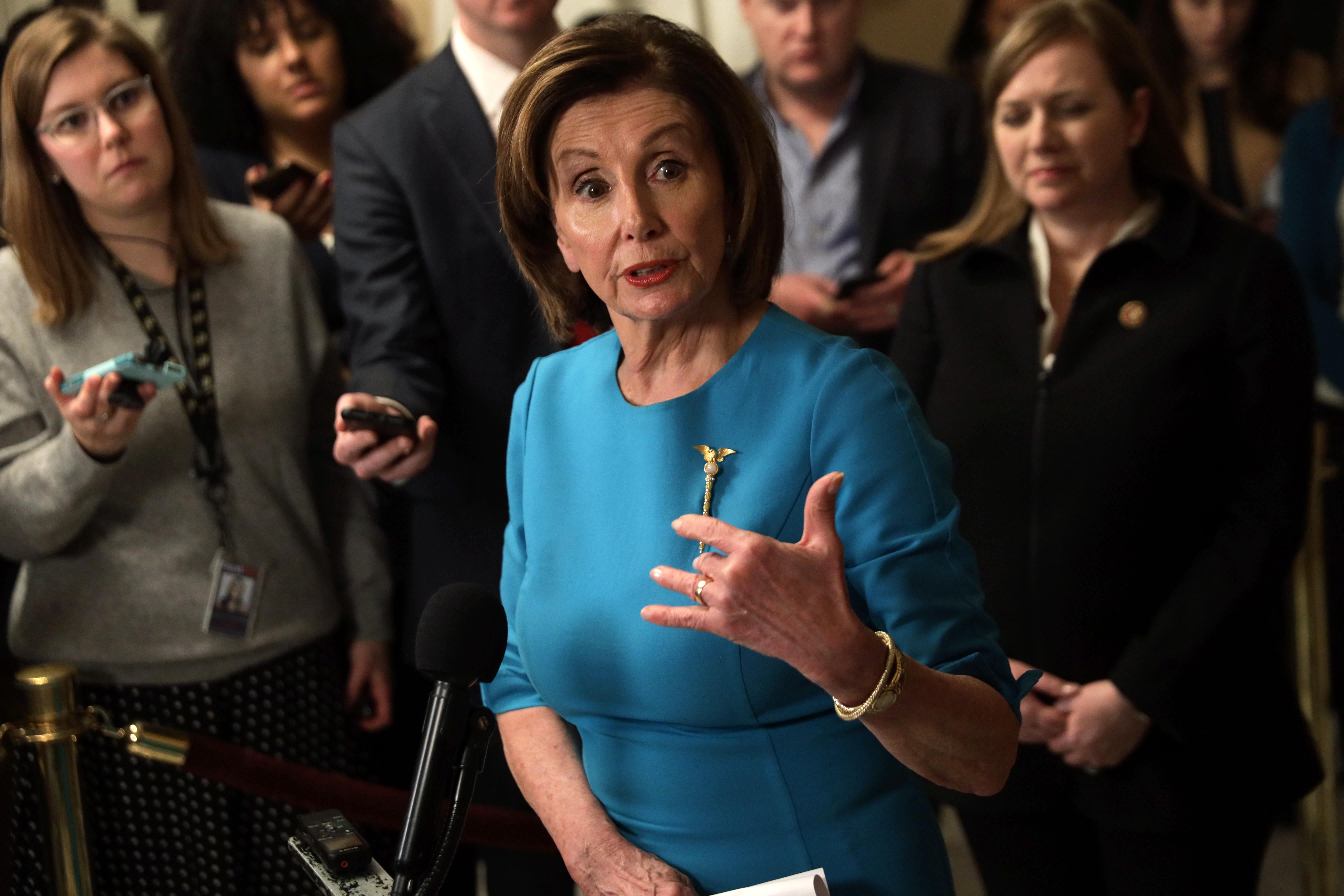
Speaker of the House Rep. Nancy Pelosi speaks to reporters at the U.S. Capitol Friday before the passage of the relief bill.
Alex Wong/Getty Images
The House approved a bipartisan bill early Saturday to provide direct relief for Americans struggling to cope with the disruptions of the novel coronavirus, allocating billions for sick pay, family leave, and free coronavirus tests.
The House passed the bill 363 to 40, with strong support. The relief bill would provide for two weeks of paid sick leave for workers, up to three months of family and medical leave, and additional funding for food assistance and Medicaid. Republicans successfully added a provision for tax credits for small- and medium-size businesses, while Democrats abandoned their push for a paid sick leave entitlement for public health emergencies. Trump also failed to get his payroll tax suspension—something that would cost $800 billion and not help those who are no longer employed or drawing a salary during the outbreak, according to the New York Times—in the bill. It’s not clear how much the current aid package would cost.
The bill will now go to the Senate, where it will be considered after the weekend. President Donald Trump praised the Republicans and Democrats for “good teamwork” and tweeted his support for the bill Saturday morning, all but guaranteeing Republicans will support the bill as well. Senate majority leader Mitch McConnell said in a statement that senators would need to “carefully review” the bill but that “the vast majority of senators in both parties will agree we should act swiftly to secure relief for American workers, families, and small businesses.”
On Friday, Speaker of the House Nancy Pelosi said that while the Senate takes up the relief bill, the House would work on another response package to expand the measures already taken to “protect the health, economic security, and well-being of the American people.”
The passage came after Trump announced a national emergency Friday, unlocking as much as $50 billion in funds for state and local governments.
Many economists believe we are already entering a recession because of the supply-side disruptions caused by the pandemic, and the drop in consumer spending from Americans told to stay at home is expected to exacerbate the problem further. Trump and Congress have felt pressured to pass aid measures to blunt the economic effects of the outbreak.
At his address Friday, Trump also announced a partnership with private companies to expand testing with drive-through locations and launch a national website where people would enter their symptoms and receive direction about testing. The latter turned out to be an inflated promise: Google said that it might not be possible to roll out such a website quickly, that the website was in “early stages,” and that it would only be rolled out, for now, in the Bay Area. Trump also said he would suspend collection on interest on federal student loans, direct the Department of Energy to buy reserves of oil, and, under the national emergency, delay tax filing deadlines for some people and businesses.
In his address, Trump flaunted proper safety measures by shaking hands with several officials. (Trump himself has been exposed to at least one confirmed case of coronavirus from a Brazilian official who visited him at Mar-a-Lago). He also rejected the blame for the government’s sluggish response to the public health crisis. “I don’t take responsibility at all,” he said. The Trump administration has been criticized for its failure to ensure an adequate number of coronavirus tests, in particular, and the United States is thought to be weeks behind where it should be.
Readers like you make our work possible. Help us continue to provide the reporting, commentary and criticism you won’t find anywhere else.
Join Slate Plusfrom Slate Magazine https://ift.tt/3a2K3li
via IFTTT
沒有留言:
張貼留言